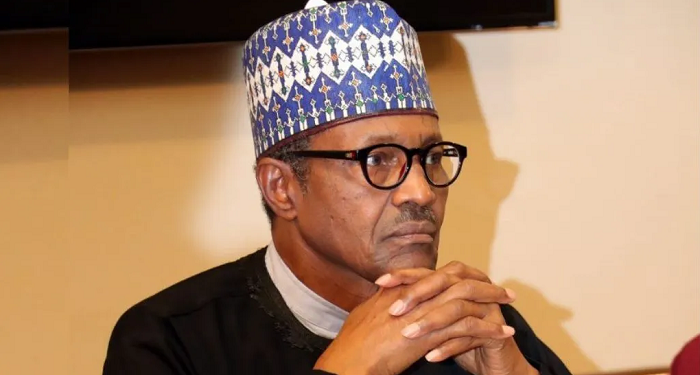Funding squeeze in Africa puts Nigeria in tight corner
The old saying among foreign investors that “if you are not in Nigeria or Africa, you are not in business” is increasingly being confined to the past as the International Monetary Fund (IMF) says Africa is facing a severe financing squeeze.
Nigeria and other countries in Sub-Saharan Africa were only beginning to recover from the COVID-19 pandemic’s economic fallout when Russia’s invasion of Ukraine roiled capital and commodity markets, drove up inflation, and paved the way for higher interest rates around the world. Looking ahead, the difficult funding environment for the region is likely to remain and become a key feature going forward.
“As a result of this development, a funding squeeze has hit Africa hard,” Wenjie Chen, chief economist and deputy division chief, regional studies at International Monetary Fund said at Lagos Business School on Wednesday.
She added, “Looking ahead, the difficult funding environment for the region is likely to remain and become a key feature of the new normal.”
Chen said regardless of the trajectory, the inflation rate in African countries remains high, with at least 20 out of 45 countries still facing double-digit inflation, and median inflation of about 10 percent as of February 2023, more than twice the level at the end of 2019.
She noted that policymakers in Nigerian and other African countries have to adapt to an environment with tighter financing conditions, which has important implications for the conduct of fiscal policy.
“Debt vulnerabilities (already elevated) are likely to worsen. With rising borrowing costs, countries may find it challenging to refinance their existing liabilities and rollover longer maturities,” Chen said.
Citing IMF April 2023 regional economic outlook, Chen noted that policymakers will struggle to cover even the most essential expenses for basic services let alone securing financing for further progress toward the Sustainable Development Goals.
The IMF report explained that the persistent global inflation and tighter monetary policies have led to higher borrowing costs for Nigeria and other sub-Saharan African countries, a development that has placed greater pressure on exchange rates.
Predicting for the next two years, the IMF report said a sizable share of outstanding Eurobond debt will come due—about $6 billion in 2024 and another $7 billion in 2025.
“If countries struggle to make repayments or rollover debt, it could have potential repercussions on the region’s economic growth and social development. Indeed, no country has been able to issue a Eurobond since spring 2022,” IMF added.
IMF explained that the funding squeeze facing Africa aggravates a protracted trend that has been years in the making.
“The interest burden on public debt is rising, because of a greater reliance on expensive market-based funding combined with a long-term decline in aid budgets,” IMF said.
It noted that the lack of financing affects a region that is already struggling with elevated macroeconomic imbalances.
“Public debt and inflation are at levels not seen in decades, with double-digit inflation present in half of the countries—eroding household purchasing power, striking at the most vulnerable, and adding to social pressures. Estimates suggest that 132 million people were acutely food-insecure in 2022,” IMF said.
IMF predicted the funding squeeze will also impact Nigeria’s and other African countries’ longer-term outlook.
“A shortage of funding may force countries to reduce resources for critical development sectors like health, education, and infrastructure, weakening the region’s growth potential,” IMF said.
Experts said the funding squeeze facing Africa holds a bleak outlook for the continent’s biggest economy, a country struggling with an acute shortage of capital it urgently needs to grow a stuttering economy and create jobs for a burgeoning population.
They say Nigeria does not appear a good investment destination compared with advanced countries at the moment, despite its status as a frontier market with growth potentials and market accessibility.
Laoye Jaiyeola, the chief executive officer of the Nigerian Economic Summit Group said Nigeria has been indecisive in making bold reforms that will generate enough internal funding for capital expenditure.
“As long as Nigeria remains a primary commodity exporter, the country will continue to struggle with access to private capital,” Jaiyeola said at the LBS symposium.
Nigeria’s foreign direct investment (FDI) plunged to $468.91 million in 2022, the lowest in at least nine years, according to official data.
Bongo Adi, an associate professor of economics at the LBS said the present Nigerian government has been very woeful when it comes to public spending.
“Costs of projects in Nigeria is extremely high, this is a disincentive for private capital,” Adi said.
IMF predicts Nigeria’s growth is forecast to decline to 3.0 percent in 2023.
“One of the reasons nothing has changed despite the Petroleum Industry Act is because the environment is no longer attractive,” Jaiyeola said.
To address macroeconomic imbalances, IMF advised Nigeria to consolidate public finances and strengthen public financial management amid difficult funding conditions.
“This will rely on continued revenue mobilization, better management of fiscal risks, and more proactive debt management,” IMF said.
The IMF advised Nigeria and other African countries to tame rising inflation by using monetary policies to return to the central bank’s target range.
It advised African countries to ensure that important efforts to fund and address climate change do not crowd out basic needs, like health and education.








